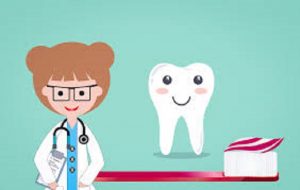We’re going to look at nutritious foods and why they are good for your oral health.
1. Fluid consumption
a) Increase your water in-take. The water will act like saliva and help to wash away any food or debris. Try to drink water with fluoride as this will help to re-mineralize any de-mineralized tooth structure after an acid attack.
b) Milk (low or non-fat) is good as it contains calcium and phosphorus which also help in the re-mineralization process. Cow milk contains the sugar Lactose which is the least decay-causing sugar, so it may be a wise choice of beverage.
c) Tea contains Polyphenols which suppress the growth of bacteria in teeth. Tea also contains fluoride which helps to decrease cavities. And if you combine the tea with milk (which contains lactose), then this is even better for you.
Water, milk and tea are good drink choices.
It’s always best to stay away from sugary or acidic types of drinks as these can cause both cavities and erosion (see below) of your teeth.
At night, it is also recommended to drink only water after you brush your teeth as there will be less salivary flow rinsing away any food debris.
1) Consider eating these foods not only for their nutritious value, but also for their beneficial effects on your mouth.
• Fruits and vegetables have high water content. In addition, the crunchier they are, the more they will help to stimulate salivary flow which buffers acidity and washes away food particles. It may be best to avoid having too much citrus fruits and tomatoes, due to their acidy effect on the teeth. The acids are a leading cause of erosion or tooth wear, not to mention the sugars lead to an increase in decay.
It is recommended not to brush your teeth after eating or drinking acidy foods or drinks, because you may end up brushing away some weakened enamel.
If you are going to drink a lot of juices or soft drinks, you may want to consider drinking with a straw. This will avoid the sugars and acids from coming in contact with the teeth.
• Whole grains
• Protein. Lean beef, chicken (no skin), fish, nuts, and milk. Again, good sources of calcium and phosphorus which help to re-mineralize enamel.
• Dairy including milk and cheese (low or non-fat). The fat in cheese helps to decrease the amount of bacteria that can adhere to the tooth’s surface.
In addition, cheese increases the concentration of the mineral calcium in plaque and this helps to stop demineralisation. Both milk and cheese are good choices for after a meal as they neutralise the acids in the mouth.
Sugar Substitutes
Both Sorbitol and Aspartame are sugar substitutes. They look and taste like sugar, but are not digested in the same way as sugar, so the bacteria in the mouth do not act on them.
Sugar-Free: What does this mean?
Just because something is sugar-free, doesn’t mean that bacteria in the mouth cannot act on them. This includes honey, cane sugar and fructose. So although they may be healthier in that they are not ‘processed’ like white sugar, the bacteria in the mouth can still convert them to acids which can cause tooth decay.
In general, try to eat foods that are low in ‘carbs’ as this is the food group that can cause the most decay in the mouth. Sticky candy, cookies, muffins, potato chips, dried fruit, pastries, soft drinks are loaded with sugar which readily adhere to the teeth and are a sure recipe for decay.
If you do eat sweets, try to eat them all at once. This way, there will be less frequent acid attacks on the teeth.
Also, consider chewing sugar-free gum after a meal, as this will help to increase salivary flow and neutralise acids.
Read the ingredients on the packages. Nowadays it’s obligatory for companies to include the breakdown of carbs, protein, and fat that is in the food they are selling.
To your health and healthy eating!
Dr. F. Keshavarz Dentistry







